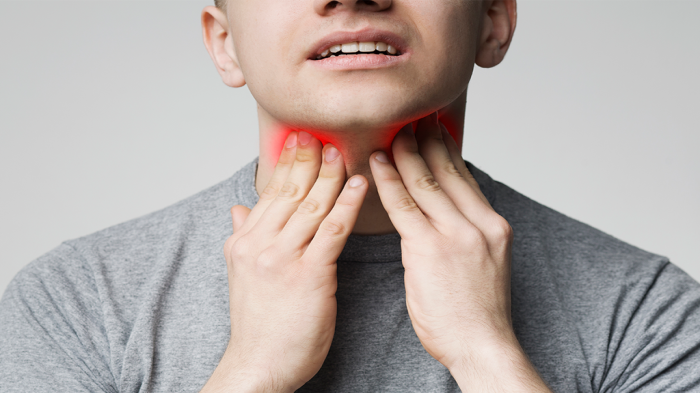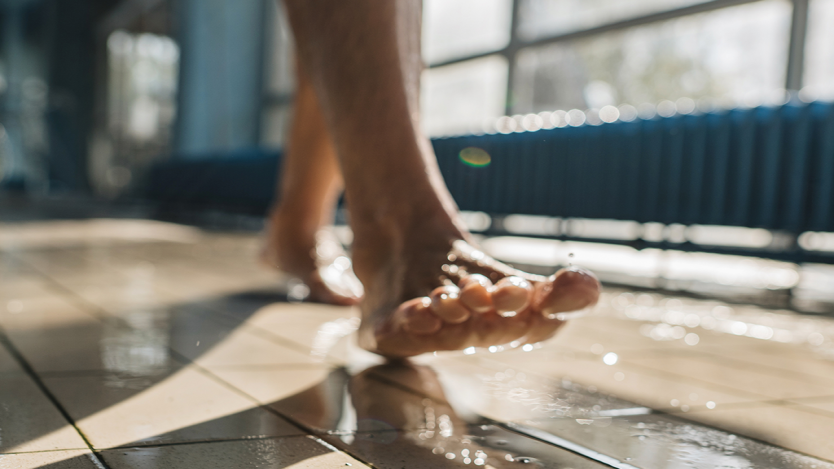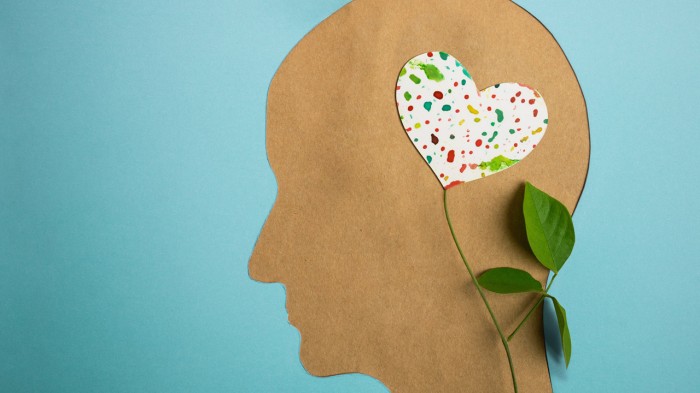In Analysis
It’s time to delve deeper into health discussions. Broaden your understanding of a range of pharmacy news and topics through in-depth analysis and insight.Bookmark
We are now in one of the most challenging winters in recent times for the NHS and the UK population, with the ‘twindemic’ of Covid-19 and seasonal flu layered upon a cost-of-living crisis that will leave many people struggling to heat their homes and buy the food and medicines they need.
A further worry regarding the demands being made on the NHS is highlighted in new research from the Proprietary Association of Great Britain (PAGB), which shows a striking lack of confidence and knowledge among consumers when it comes to caring for common self-treatable conditions.
PAGB’s 2022 survey of more than 2,000 UK adults found that:
- Over half of respondents (52 per cent) do not feel confident in treating backache
- Nearly one in five people (23 per cent) would not feel comfortable self-treating a headache
- A third would be uncertain about how to treat constipation and diarrhoea (34 and 33 per cent).
What’s more, despite 79 per cent saying people should take more responsibility for their own health, over a quarter (27 per cent) consider it acceptable to go to A&E and use GP services for conditions that they could treat themselves at home.
Self-care first, but...
Encouragingly, 35 per cent of the respondents said that self-care was always their first option and that this is something they would continue to practise – a number that PAGB chief executive Michelle Riddalls says, “would be considerably higher if the Government and NHS worked together to develop the infrastructure required
to support self-care”.
On the downside, the results show a drop in the number of people who said that they are likely to self-care. Two-thirds (64 per cent) of respondents who would not have considered self-care as their first option before the pandemic say they are more likely to do so in the future – but this is down from 69 per cent in PAGB’s 2020 survey.
Tech is promising opportunity
Technology is transforming the way people access information and presents a promising opportunity for self-care. In 2021, for example, the NHS app was the most downloaded free iOS app with over 24 million users. One in eight people said they now look up their symptoms more frequently online than they did before the pandemic.
However, as more people consume healthcare information online, it is essential that this information is reliable. Respondents reported feeling overwhelmed by the amount of health information available online and said they wish they knew more about how to spot ‘fake’ advice.
Describing this as “an urgent call to action for the Government and NHS to drastically improve self-care education”, Riddalls admits it cannot be achieved in isolation, and says “industry and pharmacy have a role to play in improving self-care education”.
The trade body is calling on NHS England’s Transformation Directorate to evaluate the use of technologies that have been developed during the Covid-19 pandemic to promote greater self-care, and to clearly signpost to these products on NHS digital channels, as well as working with policy, innovator and clinical stakeholders including the Association of British HealthTech Industries (ABHI) to explore how digital resources can be enhanced to support people to self-care.
Top ten most commonly reported self-treatable conditions (Source: PAGB) |
|||
| 2022 | 2020 | ||
| Cold | 60% | Headache | 43% |
| Headache | 54% | Backache | 33% |
| Cough | 48% | Allergies | 32% |
| Backache | 43% | Cuts or brusies | 24% |
| Sore throat | 38% | Heartburn/indigestion | 20% |
| Cuts or bruises | 35% | Diarrhoea | 17% |
| Heartburn/indigestion | 29% | Coughs | 16% |
| Diarrhoea | 27% | Constipation | 16% |
| Allergies (e.g. hay fever) | 25% | Period pain | 16% |
| Constipation | 24% | Sore throat | 15% |
Disappointing for pharmacy
The survey showed that 47 per cent of respondents agreed or strongly agreed that they were less likely to contact their GP as a first option – down from 51 per cent in the 2020 survey. Only 32 per cent agreed or strongly agreed that they were more likely to ask a pharmacist for advice as their first option.
Disappointingly, the number of respondents who use their community pharmacist as their first step in getting advice on self-treatable conditions has also dropped. Fewer than half (44 per cent) currently use community pharmacists as their first port of call, down from 47 per cent.
However, respondents support expanding the role of pharmacists so their skills can be better utilised, with 67 per cent believing pharmacists should be able to populate patients’ medical records to mention the treatments they have provided. If this was the case, 23 per cent said they would be more likely to see a pharmacist, with 31 per cent saying they would be more likely to go to pharmacists if they could make direct referrals to other healthcare professionals.
Sixty-nine per cent supported the idea of GPs being able to make referrals to pharmacists – although only 18 per cent have been referred to pharmacy, either by a GP or through NHS 111.
“Our findings show respondents support expanding the role of pharmacists so that this skilled workforce can be better utilised,” says Riddalls, “and it is clear that a Government strategy that promotes self-care and protects NHS resources would be well received by the public.”
PAGB is calling on Government to accelerate efforts to enable community pharmacists to populate medical records and be able to refer people directly and digitally to other healthcare professionals, and says the Government needs to ensure community pharmacies have the resources they need to continue to provide key services and support people to self-care safely.
National strategy needed
With the long-awaited Health Disparities White Paper kicked into the political long grass, PAGB has been working with organisations representing clinicians, pharmacies and commissioners to develop a clinical consensus on how best to support self-care in England. The Government must act now to harness the positive move to self-care, says Riddalls.
“Self-care can empower people, reduce demand on the NHS, reduce health inequalities and can improve health outcomes, yet our results suggest that there has been a shift away from self-care and people may be falling back into pre-pandemic behaviours.
“There is a risk that we could miss this time-limited opportunity to embed self-care within our healthcare system but we need a new system to be created which fully integrates the promotion of self-care for self-treatable conditions. That’s why we are calling for the Government to develop a national self-care strategy that would encourage and support people’s ability to self-care and facilitate an environment that would improve access to effective OTC treatments.”
| Percentage of respondents lacking confidence to self-treat everyday ailments | |
| Conjunctivitis | 73% |
| Warts or verrucas | 61% |
| Acne | 57% |
| Period pain | 54% |
| Backache | 52% |
| Athlete's foot | 51% |
| Nose bleeds | 45% |
| Cold sores | 40% |
| Heartburn and indigestion | 38% |
| Constipation | 34% |
| Minor burns | 34% |
| Diarrhoea | 33% |
| Sore throat | 25% |
| Headache | 23% |
| Coughs | 18% |
Challenging environment
With intimations from ministers that a ‘pharmacy first’ approach for self-treatable conditions could be back on the agenda in England, the Government must recognise that pharmacists are working under challenging circumstances. “It is important pharmacists are resourced in order to carry out their work,” Riddalls says, adding that PAGB will play its part and undertake further research to understand the barriers which prevent more people from practising self-care.
“Next year we would like to do an even more extensive study,” she says, “looking at localised demographic regions and variations in ethnicity as well as respondents’ social and economic status. We will ask them what they perceive is preventing them from [carrying out] self-care, and find out for them what the system can provide to make them feel more confident.”
Action needed
In the meantime, given the challenging winter now underway, the poor economic forecast and the Government’s aspirations for the NHS, PAGB is calling on ministers to act now in order to ensure the progress made in self-care is not lost. Since the NHS could save £1.5bn a year if people self-care for self-treatable conditions without going to GPs and A&E, this makes sound economic sense.
“People need to be empowered to self-care and we know it can be done,” says Riddalls. “During the pandemic a co-ordinated campaign by NHS England and the Department of Health and Social Care to stay at home and self-treat had a positive effect on both people’s confidence and ability to self-treat, and we need to replicate this for all self-treatable conditions.
“The Covid messaging showed that if there is strong Government strategy, people listen and understand it. So if Government decided to push self-care – and promote pharmacy as part of that – you would see the public responding and making use of pharmacies as they have got used to doing during the pandemic. The need, support and opportunity for self-care has never been greater. All that is needed now is the political will to make it happen.”
The PAGB report ‘Taking care, taking control: self-care attitudes’ can be found here.
Sponsored
 Sponsored education
Sponsored education
7 steps to managing sore throat
Get to grips with what customers want from their sore throat treatment and upgrade your consultations with this 7-step guide
 Sponsored education
Sponsored education
Challenge your thinking on warts and verrucas
Discover different treatment options for warts and verruas and when to recommend them to your customers, based on their individual needs


Record my learning outcomes